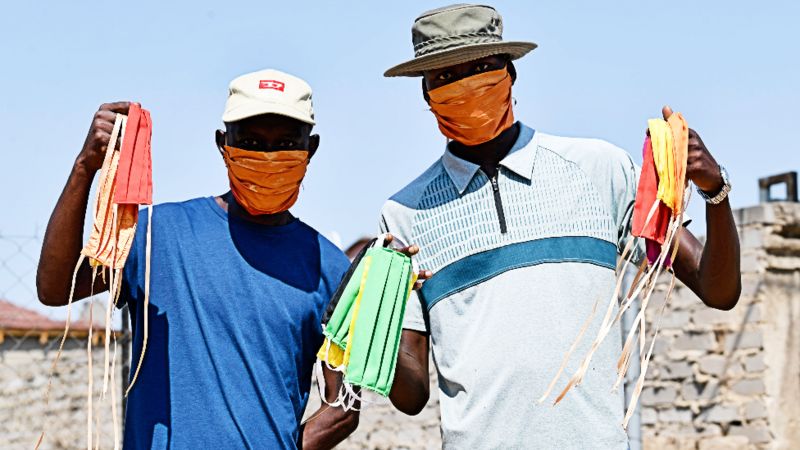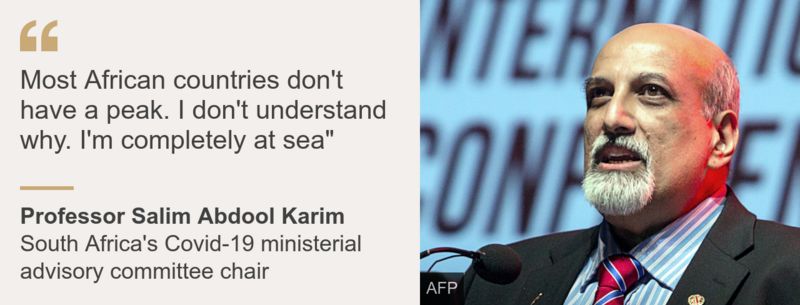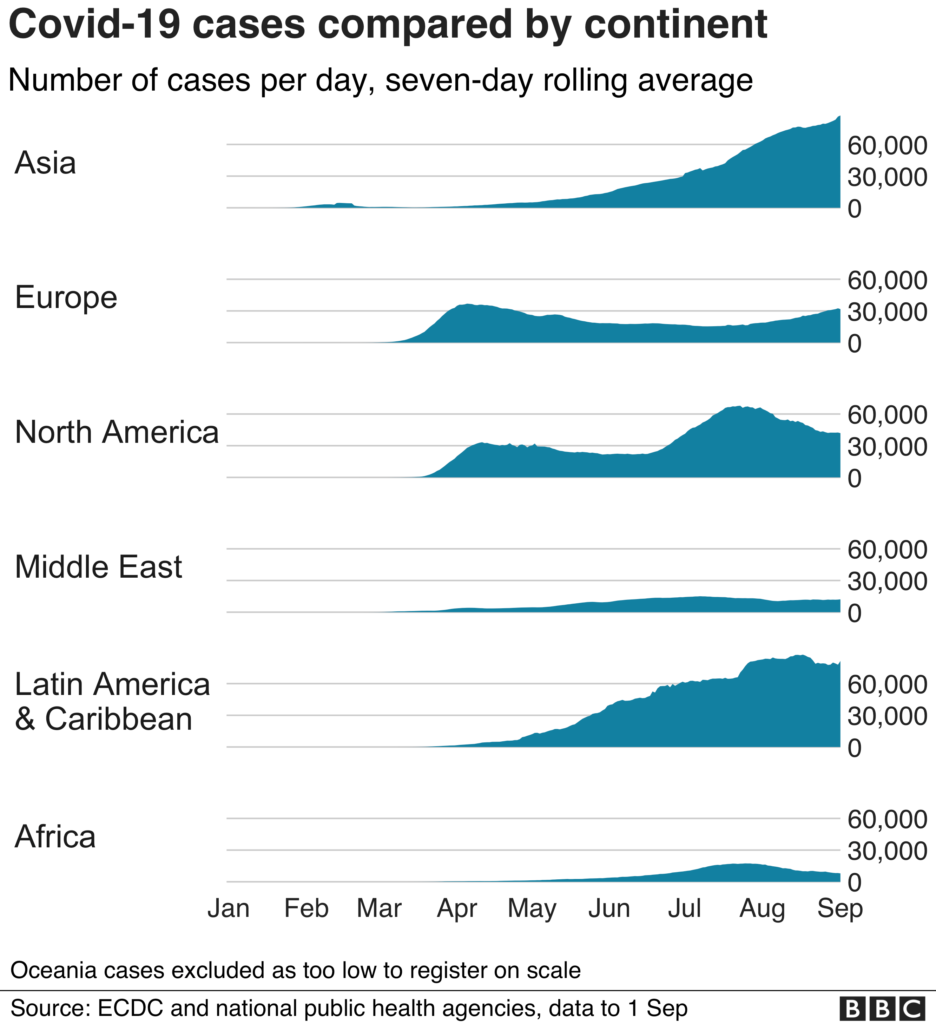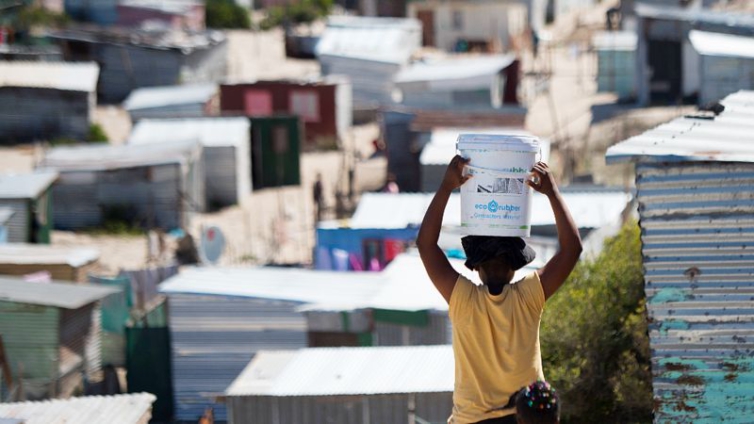Is there a link between poverty, crowded accommodation, and Africa's bafflingly low infection and death rates from the pandemic?
As the number of infections dips sharply in South Africa, and stays relatively low across much of the continent, experts are reaching towards a startling hypothesis.
Crowded townships. Poor hygiene. The impossibility of social distancing in communities, where large families often share a single room.
For months health experts have been warning that living conditions in poor, urban communities across Africa are likely to contribute to a rapid spread of coronavirus.
"Population density is such a key factor. If you don't have the ability to social distance, the virus spreads," said Professor Salim Abdool Karim, the head of South Africa's ministerial advisory team on Covid-19.
But what if the opposite is also true?

What if those same crowded conditions also offer a possible solution to the mystery that has been perplexing experts on the continent for months?What if - and this is putting it rather crudely - poverty proves to be the best defence against Covid-19?
'It's an enigma'
Let's start with that mystery.In the early stages of the pandemic, all the experts and all the modelling agreed that Africa was in trouble.

"I thought we were heading towards a disaster, a complete meltdown," said Professor Shabir Madhi, South Africa's top virologist.
Even the most optimistic predictions showed that the nation's hospitals - and the continent's most developed health system would be quickly overwhelmed.
And yet, today South Africa is emerging from its first wave of infections with a Covid-19 death rate roughly seven times lower than the UK's.

Even if deaths have been under-reported here perhaps by a factor of two South Africa has still performed impressively well, as have many other parts of the continent, where hospital beds remain stubbornly empty, and where infection graphs have almost entirely avoided the pronounced peaks and sharp angles seen in so many other parts of the world.
"Most African countries don't have a peak. I don't understand why. I'm completely at sea," admitted Prof Karim, a leading voice on South Africa's pandemic response.
Professor Madhi agrees: "This is an enigma. It's completely unbelievable."
For a while now, experts have cited a youthful population as the best explanation for Africa's relatively low infection rates. After all, the average age on the continent is roughly half that in Europe.
Far fewer Africans live into their 80s, and so are less likely to succumb to the virus as a result."Age is the highest risk factor.
Africa's young population protects it," said Tim Bromfield, a regional director of the Tony Blair Institute for Global Change.
But as the pandemic drags on, and the statistical evidence builds up, analysts appear increasingly reluctant to give demographics all the credit for this continent's successes.
"Age is not such a big factor," said Prof Karim.Early, and aggressive lockdowns here in South Africa and elsewhere on the continent have clearly played a crucial role.
Clear messaging about masks and the provision of oxygen supplies have also been important.
Latest Stories
-
Heavy security at EC G/A Regional office ahead of re-collation
57 minutes -
Livestream: Newsfile probes ORAL, re-collation & transition blues
1 hour -
Ghana-Russia Centre supports pupils of Pakro-Zongo basic school
3 hours -
Ghana launches Malaria Youth Corps, leveraging youth power in fighting malaria
4 hours -
Book Review – All’s Well (Feehi): Living a Life Guided by Grace by Abednego Okoe Feehi Amartey and Theodora Dame Adjin-Tettey
5 hours -
French for health: A new initiative by French Embassy in Ghana
11 hours -
Ghana slowly retracing steps back to path of macroeconomic stability – Deloitte
11 hours -
Ghana’s debt service-to-revenue ratio reached all-time high of 127% in 2020, highest in SSA – IMF
11 hours -
Ghana’s consolidation efforts under IMF progamme to continue to be based on revenue
11 hours -
GPL 2024/25: Hearts beat 3-1 Chelsea to return to winning ways
12 hours -
Ghana set to host second Flag All-Star Game in Accra
13 hours -
Angor CREMA: Empowering Ghana’s coastal communities for sustainable growth
13 hours -
The Legon VC… and childhood memories
14 hours -
The absurd inequality of climate work: Overcoming dilemmas in the green transition
14 hours -
ORAL team receives first dossier of ¢500m National Service ghost names scandal
15 hours

